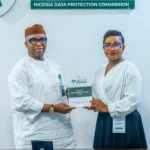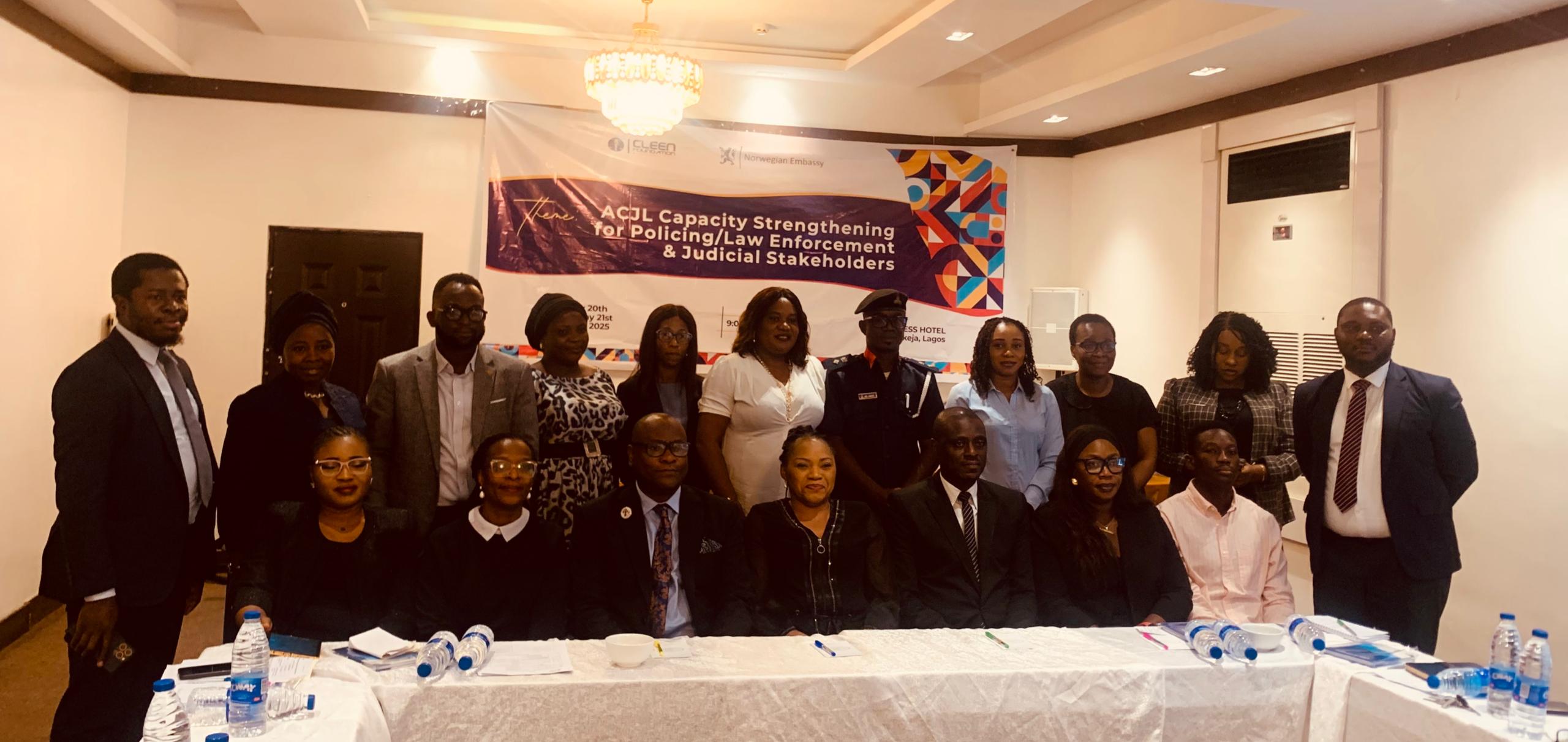By Adenike Ayodele
Stakeholders in the judiciary sector have underscored the need for sustained efforts aimed at promoting the administration of criminal justice in Nigeria.
The stakeholders made this known at a two-day workshop organised by Cleen Foundation in collaboration with the Norwegian Embassy, on Monday.
The workshop held in Ikeja, is tagged: “Administration of Criminal Justice Law (ACJL); Capacity Strengthening Workshop for Policing, Law Enforcement and Judicial Stakeholders”.
In her opening remarks, Programme Adviser of Cleen, Mrs Blessing Abiri, hinted that the workshop was part of a project titled “Strengthening Rights-Based Approach to ACJA Frameworks and Advancing Women, Peace and Security in Nigeria”.
Abiri, who represented the acting Executive Director of the foundation, Mr Peter Maduoma, said that the workshop aims to improve justice delivery, by promoting reapect for human rights in law enforcement and judicial process.
According to her, the project, launched in August, is being implemented by 12 states of the federation, namely: Lagos, Enugu, Imo, Ekiti, Plateau, Benue, Nasarawa, Kaduna, Jigawa, Adamawa, Cross River and Akwa Ibom.
“A baseline assessment across these states, revealed the need for stronger collaboration, technical knowledge, and reforms to ensure a consistent and fair application of the ACJL.
“Cleen Foundation, with over 27 years of experience in promoting justice, will continue to work with government institutions, civil society and private sector actors, to build a justice system grounded in human rights and accountability.
“We call on participants to make meaningful contributions toward advancing a more inclusive, transparent and people-centred justice system in Lagos and across Nigeria,” she said.
In his goodwill message, the Lagos State Director of Public Prosecution (DPP), Dr Babajide Martins, commended Cleen for its commitment to improving the administration of criminal justice.
Martins, who represented the Attorney-General of Lagos State, Mr Lawal Pedro (SAN), said that the ministry recognises the importance of ACJL in promoting efficiency in criminal jurisprudence.
He said that the ministry would review recommendations from the workshop, identify areas which require amendment, and refer same to the House of Assembly.
“We urge non-governmental organisations to go beyond pointing out shortcomings in the justice system, by contributing to solutions through research, training and practical recommendations.
“We will continue to partner with relevant stakeholders, including the Cleen Foundation, to promote a transparent, efficient and rights-based criminal justice system in Lagos State,” he said.
On her part, a Magistrate, Mrs Joy Ugbomoiko, who represented the Chief Judge of Lagos State, Justice Kazeem Alogba, noted that the ACJL 2021 (as amended) introduced several innovations.
She said that this was to harmonise justice administration and include provisions against arresting family members in place of suspects, the use of CCTV recordings for confessional statements, among others
Ugbomoiko, noted that there had been improved cooperation between the police and the judiciary, which had positively impacted justice delivery as well as reduced rights infringement.
“The Chief Judge recently signed a non-custodial sentencing practice direction to promote alternatives to imprisonment and decongest correctional facilities.
“The committee has already began compiling a list of deserving inmates for consideration under the ongoing decongestion exercise,” she said .
According to her, the judiciary is open to collaborate with relevant stakeholders, to ensure that the outcome of such trainings, translates into workable solutions for the betterment of the state’s criminal justice system.
On his part, the Public Relations Officer of the Nigeria Correctional Centre, Lagos Command, DSC Onimisi Osho, called for synergy and mutual understanding among state actors, in achieving an efficient justice system.
Osho identified intra-agency cooperation, trust-building, and knowledge exchange as being vital tools for ensuring respect for human rights within the justice system.
He expressed optimism that the workshop will yield lasting impact and strengthen a collective resolve by stakeholders towards achieving a responsive system of justice administration system.
In the same vein, Legal Officer of the Lagos command of the Nigeria Security and Civil Defence Corps (NSCDC), Mr Awodun Adedayo, lauded the initiative by Cleen.
He described the workshop as timely and essential for improving national development and institutional performance. (NAN) (www.nannews.ng)
Edited by Sandra Umeh












